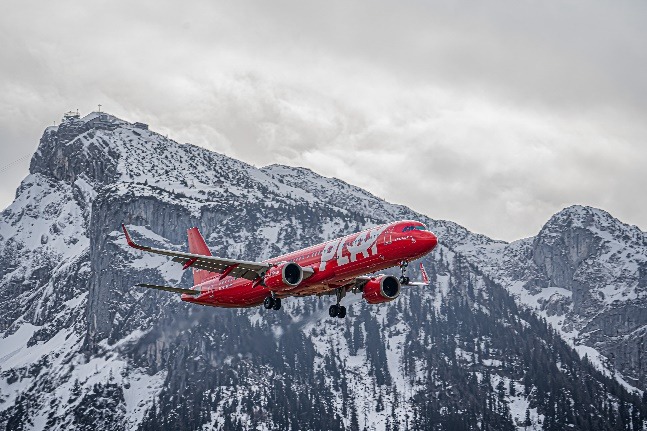![]()
That’s Hot: Iceland Volcanos and Northern Lights Could Peak This Winter
- Iceland’s Reykjanes Peninsula enters a new phase of volcanic activity that could last between 10 and 100 years
- No PLAY flights have been cancelled despite 400 days of volcanic activity
- Earth’s position in space is expected to result in stronger displays of the Northern Lights
Iceland’s Reykjanes peninsula has recently entered a new phase of volcanic activity, which is expected to last up to 100 years, with one volcano erupting annually since 2021.
In the last 400 days of increased volcanic activity, PLAY, Iceland’s leading low-cost airline, has not had any disruptions to operations. The airline recorded its highest load factor to date in the month of August, due largely to the breathtaking imagery of the 22 August eruption.
For travellers after once in a lifetime views, a trip to Iceland in 2024 should be on the cards. As Earth approaches prime position to result in increased geomagnetic activity*, stronger displays of the Northern Lights are highly anticipated. This solar activity combined with the new phase of volcanic activity means there has never been a better time to visit Iceland.
To put to bed some of the recent volcanic safety concerns, PLAY, the leading low-cost Icelandic carrier, has put together a guide addressing some of the biggest questions surround the island.
How many active volcanoes are in Iceland?
Iceland sits at the divergent plate boundary at the top of the Mid-Atlantic. As the North American and Eurasian plates drift apart, they create tension which is the cause of a lot of seismic activity. There are about 30 active volcanoes in Iceland, but it’s important to keep in mind that “active” means that the volcano has erupted sometime in the past 10,00 years.
Of these 32 volcanoes, only 6 are considered very active, having erupted regularly in recent memory. Most of these recent eruptions have been small with minimal lava flow, though a few have been more precarious.
Are Icelandic volcanoes safe?
Icelanders are rather laid back about volcanic activity. Earthquakes and eruptions are considered exciting and newsworthy, but not something locals would stop their everyday life for. Because of the frequency of earthquakes and volcanic activity, Icelandic building regulations are very strict in regards to seismic activity, meaning buildings are built to withstand the activity and therefore regarded as safe. While pavement split during a flurry of earthquakes in November 2023, all buildings stood their ground.
Is it safe to visit Iceland?
It is considered very safe to travel to Iceland, but it is important to respect the force that comes from volcanic activity. Travellers should always check safetravel.is for detailed information before traveling. While recent activity has been relatively safe, other activity can be more treacherous and therefore should be treated with the respect and care that these natural phenomena deserve.
Einar Örn Ólafsson, PLAY’s CEO, says “Iceland remains a safe destination for both locals and visitors, with Iceland having some of the most advanced volcanic preparedness systems in the world. Indeed, in the last 400 days of volcanic activity on the Reykjanes Peninsula, not a single PLAY flight has been cancelled as a result.”
The Icelandic authorities, rescue services, and scientists are both experts in their fields and champions to Iceland. Icelanders respect their authority and travellers should, too.
Trust the science, follow directions, respect authority, and travellers will be safe to check this bucket list destination off their list.
Help keep news FREE for our readers
Supporting your local community newspaper/online news outlet is crucial now more than ever. If you believe in independent journalism, then consider making a valuable contribution by making a one-time or monthly donation. We operate in rural areas where providing unbiased news can be challenging. Read More About Supporting The West Wales Chronicle























